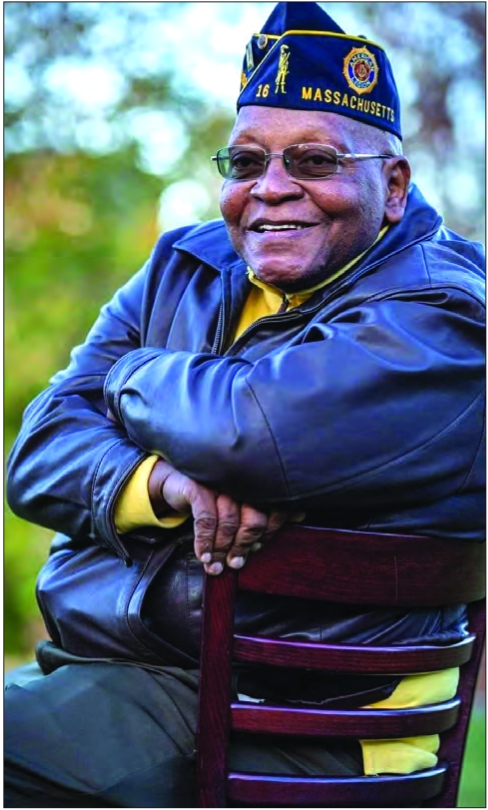
Haywood Fennell Sr., Vietnam veteran and Renaissance manHaywood Fennell Sr. is a soft-spoken Vietnam veteran, playwright, and advocate who believes the veteran community is one of the most overlooked and underused community resources. Because of this, Fennell has spent the last three decades using his art to uplift not only the men and women who served in the military but also the Black community, and fill educational and cultural gaps that he feels need to be addressed.
“I came from a family that insisted that education was key. So that meant that I had to go to school every day, I had to get good marks. But, our history was absent. We didn’t have a lot of imagery about African Americans. We didn’t know about African Americans.”
Like so many veterans, Fennell struggled with substance abuse after his time in the service and found himself incarcerated and living in homeless shelters. It was after his last visit to rehab that the now 88-yearold veteran began to write his first play, “Harlem Renaissance Revisited with a Boston Flavor,” while living in the homeless shelter where he was for over a year.
“The inspiration, it came about when I realized how great we were. Because, we weren’t taught history in the manner that we try to teach and reach with the plays. I learned about the Niagara Falls movement, which later became the NAACP. I learned about the resistance to being denied and not moving forward, and that helped me. I was a character, but I didn’t really know it until I began to get involved and meet people and read everything about the Harlem Renaissance. It was a movement; it was all over the United States, not just Harlem.”
During his six years in the military, Fennell was a non-combat member and worked as a photographer and information specialist. While serving, he also studied to be a writer.
Since writing his first play he has authored the series “Coota and the Magic
Quilt” and started the Coota Literacy Enhancement Project, a program
that celebrates Black authors and artists.
Fennell
recounted times after his discharge from the service when he would hear
young Black men and women addressing one another with the “n-word” and
other profanities that historically had been used to disparage Black
Americans.
“I was
concerned about the way that our young people communicate with each
other; they were really into using the ‘n-word.’ One day, I was standing
in Dudley Station in Boston, and I was listening to them call each
other that word, and I would ask them, ‘Why do you do that?’ and they
would say, ‘Oh, that’s my boy, that’s my friend,’ and I would tell them
that’s not a friendly word.”
He
decided to write a book that would resonate with the young people he
had been observing around the city as a commentary on the possibilities
that are attainable when young Black people are given positive literary
and artistic reinforcement.
“I
wrote this book ‘Coota and the Magic Quilt’ about this little boy from
Roxbury who wanted to be a rap star, and his mother was afraid he was
gonna join a gang, so she called her mother, who’s a retired
schoolteacher and a quiltmaker, and the grandmother, after hearing her
daughter talk about her concerns, said, ‘Send him to me.’”
Fennell
continued to say that his observations of young people inspired him to
develop a space where Black literature and Black academia were
celebrated and talked about and use that space to combat the negativity
that young people are told is “hip” or “cool.”
A
true Renaissance man, Fennell has lived American history as much as he
has tried to shape it. Through the Coota series and the Coota Literacy
Enhancement Project, he continues to support youth and veterans through
the universal language of art and education.